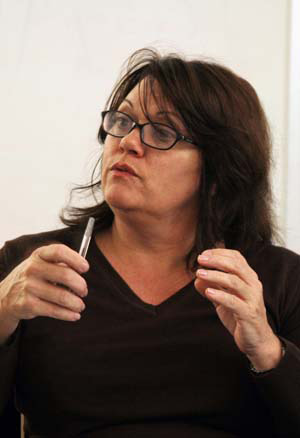

Professors
Simón Wefferand
Robin DeLuganhave a long-term commitment to the Valley.
They’ve agreed to undertake a 10-year study of communities here to analyze the quality of life, to help community-based organizations figure out how their programs work and might network with other organizations, and to create forums for sharing their findings with community members.
This is the pilot year of the Partnership for the Assessment of Communities Project. Weffer and DeLugan, both in the
School of Social Sciences, Humanities and Arts, have been designing the initial study method since last fall. This summer, they and several students will begin interviewing people in South Merced and Planada to gain urban and rural perspectives.
At the same time, professors from University of the Pacific in Stockton and California State University, Fresno, will conduct similar studies in rural and urban communities in their areas.
This unique partnership will help form a baseline of information about how residents perceive their communities and quality of life. The surveys will ask about everything from the economy, employment, and home ownership, to education, child care, health care and community involvement.
If you want changes to happen, you have to get data as close as possible to the actual lived experience to see how and if everything is working, DeLugan said.
The study is overseen by the Great Valley Center and is connected to the California Partnership for the San Joaquin Valley, which has recently funded a number of pilot programs designed to address regional disparities.
Each year, the professors and students will survey the same communities, and survey data will be compared to economic and other statistics reflecting the health of the communities. After the data is input and analyzed, an annual report will be shared in town-hall-style meetings near the first of each year.
At the end of the 10 years, the plan is to be able to show how quality of life has changed at the local level and how that compares to regional data. The professors hope that asking community members about their lives and priorities will encourage people to get involved in the process of creating strong communities.
We want to be able to talk about the health of these communities from a 360-degree vantage point, Weffer said.






